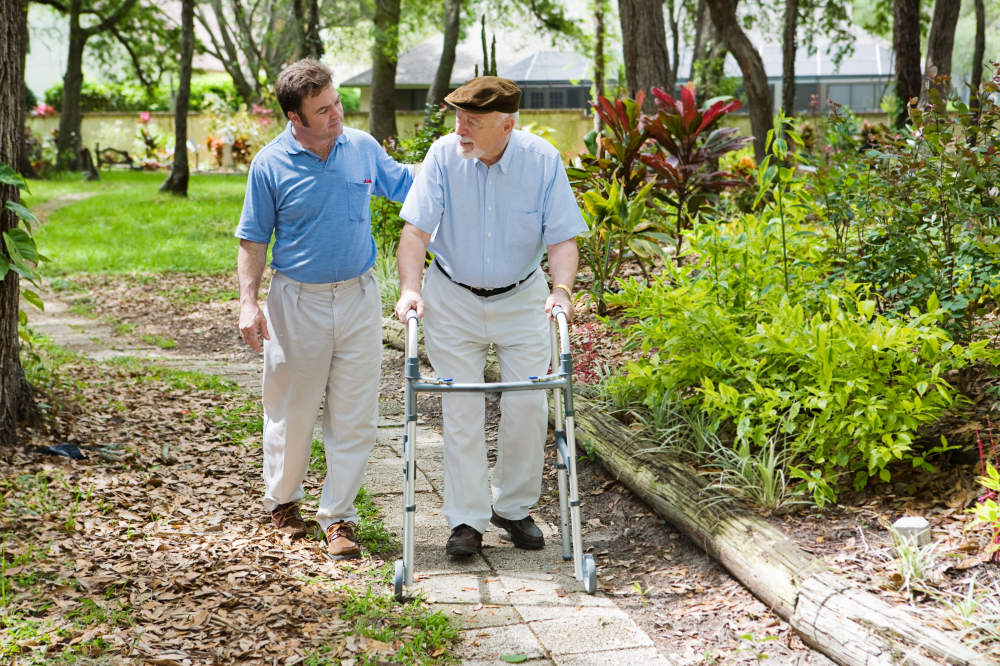August 27, 2019
The Male Family Caregiver
 While women are often viewed as the typical family caregiver, more and more men are stepping into that role, either by choice or necessity. According to an AARP report, Breaking Stereotypes: Spotlight on Male Family Caregivers, 40 percent of the family caregivers for adults are male, up from 19 percent just 15 years ago. That equals 16 million male family caregivers in the United States.
While women are often viewed as the typical family caregiver, more and more men are stepping into that role, either by choice or necessity. According to an AARP report, Breaking Stereotypes: Spotlight on Male Family Caregivers, 40 percent of the family caregivers for adults are male, up from 19 percent just 15 years ago. That equals 16 million male family caregivers in the United States.
Many men may have grown up in a household or culture in which females have been perceived as the primary family nurturers. Yet, more men than ever are rolling up their sleeves and helping an ill loved one with day-to-day tasks, such as dressing, eating, bathing, toileting, changing dressings and managing medications.
In many respects, male caregivers resemble their female counterparts. Both say they had little choice about taking on caregiving responsibilities, whether they are caring for a parent, a spouse or partner, child, other relative, or friend. Both are more prone to health problems and depression than non-caregivers. Both manage finances and medical care, and also provide personal care. Both may continue to work full- or part-time jobs and may be caring for elderly parents as well as children still at home.
But the AARP report suggests that there might be some differences between male and female caregivers.
Men, for instance, may be more uncomfortable with hands-on personal care, although such intimate interactions can be difficult for caregivers of any gender. Men may also be less likely to seek assistance or open up to others when they feel stressed or overwhelmed by caregiving responsibilities.
Tips for Men Providing Care
Below are tips for men to help them improve the care they provide, succeed in their responsibilities, and stay on top of their own health and well-being.
Be Positive
Men who focus on the positive aspects of caregiving will find the task and commitment less challenging. Many men describe increased companionship as one of the most positive aspects of providing care.
Accepting and Finding Support
Some men may prefer to solve problems on their own rather than ask for help, but it is important for male caregivers to get comfortable with seeking assistance. There are many social, health and human services available in the community that can be beneficial for both caregivers and care recipients alike. If you are a male caregiver, become familiar with your local community resources so you can learn about helpful services and programs. Support groups for male caregivers may also be available in your area. Support groups are an excellent resource for caregivers to connect and share experiences in a judgement-free environment.
Focus on Yourself, Too
Male caregivers who make their own health a priority tend to be better, stronger caregivers. A healthy diet, regular exercise and routine visits to the doctor can help male caregivers ensure they are in the best condition to care for a loved one’s needs.